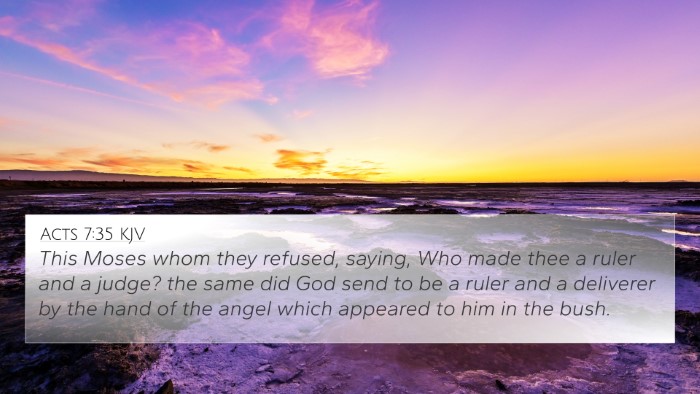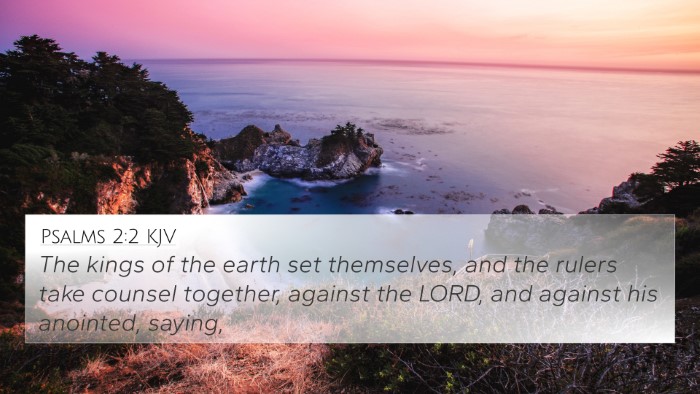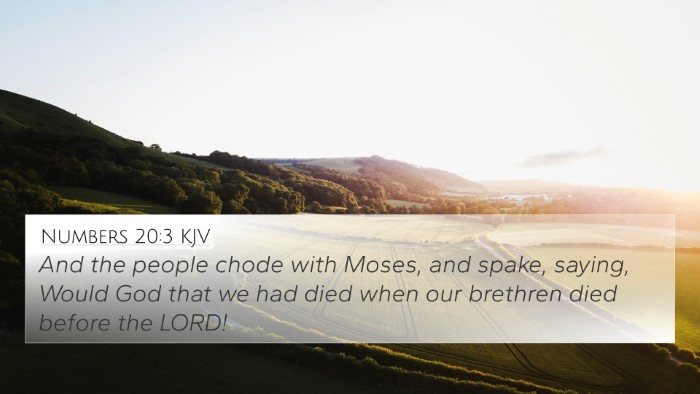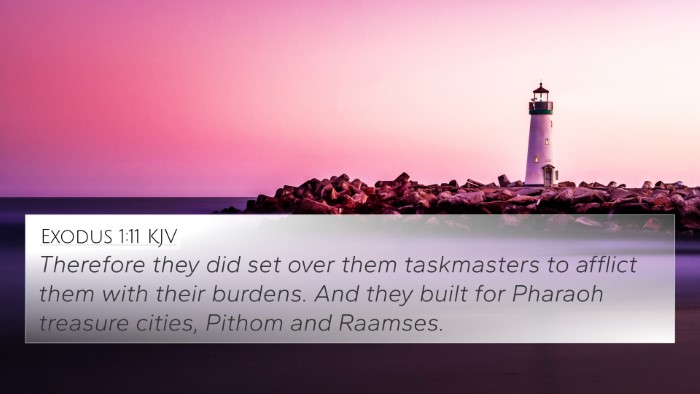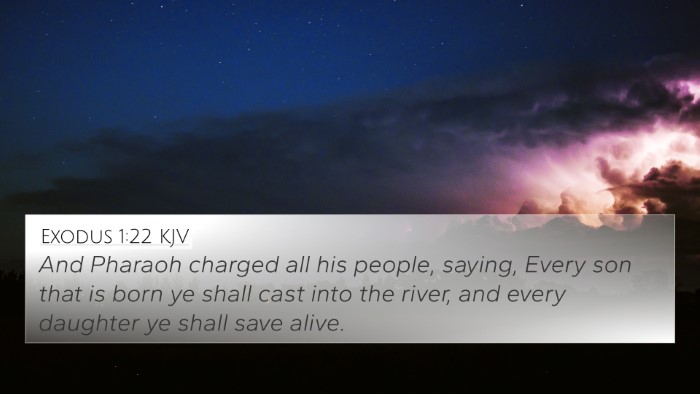Understanding Numbers 16:13
Numbers 16:13 is a pivotal verse in the narrative of Korah's rebellion against Moses and Aaron. It encapsulates the tension of authority, the challenge of leadership, and God's response to rebellion among His people.
Verse Context
The verse reads: "Is it a small thing that you have brought us up out of a land flowing with milk and honey, to kill us in the wilderness, and you would altogether make yourself a prince over us?" This challenge reflects a deep-seated discontent among some Israelites.
Insights from Commentaries
-
Matthew Henry:
Henry emphasizes the audacity of Korah and his followers in questioning Moses' leadership. He highlights the irony in their assertions that Moses brought them out of a land of plenty only to lead them into hardship, when it was God’s deliverance that led them out of Egypt and into a covenant relationship.
-
Albert Barnes:
Barnes focuses on the insidious nature of Korah's rebellion. He notes that Korah was not merely challenging Moses’ authority, but was also undermining the established order that God had instituted. The reference to a "land flowing with milk and honey" evokes memories of God's promises, contrasting their present reality of wilderness wandering.
-
Adam Clarke:
Clarke provides a detailed exposition on the nature of Korah’s accusations. He points out that the phrase "small thing" indicates Korah's belittling response to God’s miracles. Clarke argues that this rebellion was rooted in pride and discontent, reflecting a wider inability to trust in God’s providence.
Thematic Connections
The themes in Numbers 16:13 are echoed throughout the Bible, touching on the significance of authority, trust in God's leadership, and the consequences of rebellion. These themes are integral to understanding the broader narrative of Scripture.
Cross-References to Consider
- Exodus 16:3 - Complaints in the wilderness.
- Numbers 14:4 - Desire to return to Egypt.
- Deuteronomy 1:27 - Grumbling against God’s appointed leaders.
- Hebrews 3:16-19 - The consequences of unbelief.
- Jude 1:11 - References to the rebellion of Korah.
- 1 Samuel 8:5 - The demand for a king, rejecting God’s rule.
- Proverbs 16:18 - Pride goes before destruction.
- Romans 13:1 - Submission to governing authorities.
- Galatians 5:20 - Examples of the works of the flesh, including strife and dissensions.
- Revelation 2:14 - The error of Balaam linked to rebellion.
Conclusion
In summary, Numbers 16:13 serves as a crucial reminder of the consequences of rebellion against divinely appointed leadership. It challenges believers to reflect on their trust in God’s guidance. Understanding this verse requires recognition of the broader themes of rebellion, authority, and faithfulness found in the scriptures.
Further Study Recommendations
To deepen your understanding, consider tools for Bible cross-referencing. Utilize a Bible concordance or a cross-reference Bible study approach to explore connections between this verse and others that illustrate God’s sovereignty and the importance of obedience. Studying comparative Bible verses related to leadership and rebellion can offer further insights into the direct implications of Numbers 16:13.



